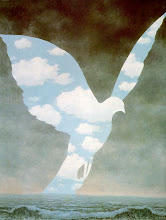"According to critic Northrop Frye,'Tragic heroes are so much the highest points in their human landscape that they seem the inevitable conductors of the power about them, great trees more likely to be struck by lightning than a clump of grass. Conductors may of course be instruments as well as victims of the divine lightening.' Select a novel or play in which a tragic figure functions as an instrument of the suffering of others. Then write an essay in which you explain how the suffering brought upon others by that figure contributes to the tragic vision of the work as a whole. Avoid plot summary."Be careful to respond to the prompt--that of tragic vision-- and not just the quotation. You should focus your answer not on Othello, but those effected by his actions and why they are so. What is it in their respective characters that make them part of the tragic vision? Make sure you define in your thesis statement what the tragic vision of this play entails.
In the story of "The Lion King" Mufasa is the great on who conducts the tragedy for all those who surround him. Though Lion King is not a tragic tale in its full span because of Simba's triumph in the predicable Disney ending, Mufasa creates a tragic vision when he falls for the mind game Scar lures him with. Mufasa creates tragedy for all who surround him. His Pride suffers, the land suffers and his son and wife suffer. This mirrors Iago and Othello's story. Othello has a character that is genuine and trusting and Iago knows this. Iago doesn't have to work very hard to trick Othello into thinking Desdemona is unfaithful and his actions as the mighty "conductor" take a ripple effect on the people around him. The tragic vision is complete because not only is the life of the tragic hero tainted but those closest to them will fall also. Had Othello not been tricked Cassio would have never been suspect in his jealous mind and neither would Desdemona. Iago acts as the lightening in the tragic storm much as Scar. These two villans create continuous turmoil for those they envy, and they are masters at it. Their roles in the conception of the tragic vision is essential because they play so many people at once. The hyena's, the lionesses of the pride, Simba have this unconditional trust in Scar much like Othello, Cassio, Desdemona and Roderigo have for Iago. The entire lengths of the stories you want to scream at the characters "WHAT THE HELL ARE YOU THINKING! RAAAAWR! I PRITHEE THINK BEFORE YOU ARE OVERCOME WITH THIS PESTILENCE!" Ha..speaking in any sort of language they will understand. This tragic trust, These masters of deception and brain washing, The infallible effectiveness of these perfect leaders, the love for their communities, The fall of these leaders and the butterfly effect it causes: All of these things mix together to create a tragic vision.
Thursday, December 6, 2007
Saturday, December 1, 2007
"Yes snickered the devil, but i have all the umpires!"
TO be born innately evil? well that would suck. I have to say from my years of baby-sitting, i am sure that some babies are born evil.
Ha.
But on a serious note, i think to define good and evil is dangerous territory. Who is to say what is good, or what is evil? God?
Whose god? What makes a Christian's God more moral or good than a pagans? Sure there are things that seem completely immoral, but if I had grown up in a radically patriarchal society, I cannot be sure that I would think that for a man to beat or rape his wife as punishment was wrong? If things are truly "evil" or immoral that that would mean that mankind was born with gages for it and therefore... born "good"? There is no way to be sure with out completely removing all outside influences. All humans are born knowing is what makes them happy, and what makes them feel pain, and from that stems morals: good and evil.I know what is "right" and what is "wrong" because of what I am taught, and it makes me passionate about it. The morality is ingrained in me, but I wasn't born that way, no one is.
Ha.
But on a serious note, i think to define good and evil is dangerous territory. Who is to say what is good, or what is evil? God?
Whose god? What makes a Christian's God more moral or good than a pagans? Sure there are things that seem completely immoral, but if I had grown up in a radically patriarchal society, I cannot be sure that I would think that for a man to beat or rape his wife as punishment was wrong? If things are truly "evil" or immoral that that would mean that mankind was born with gages for it and therefore... born "good"? There is no way to be sure with out completely removing all outside influences. All humans are born knowing is what makes them happy, and what makes them feel pain, and from that stems morals: good and evil.I know what is "right" and what is "wrong" because of what I am taught, and it makes me passionate about it. The morality is ingrained in me, but I wasn't born that way, no one is.
Subscribe to:
Posts (Atom)



